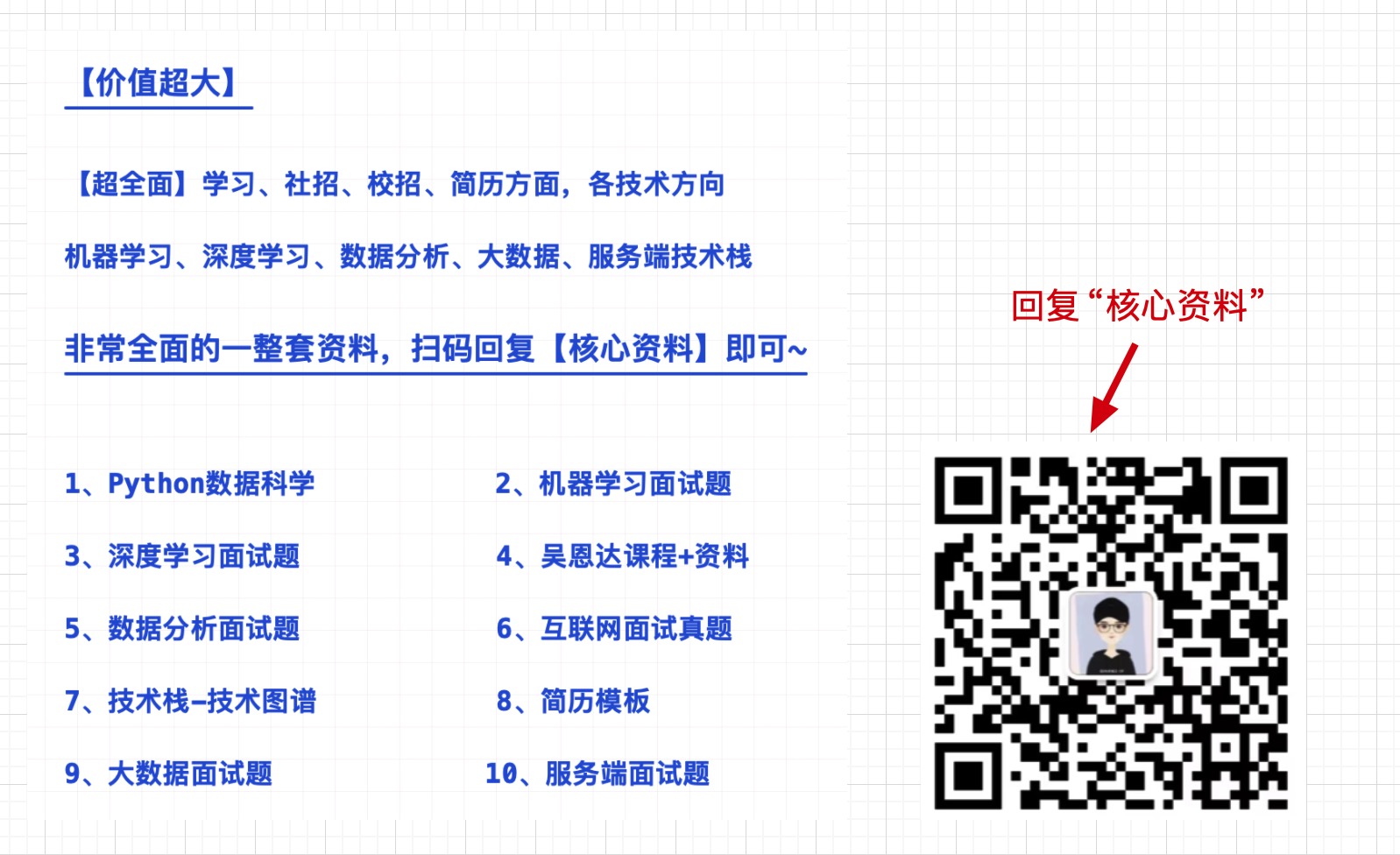Linux下实现I/O复用的系统调用方式主要:select、poll、epoll。
select
select系统调用可在一段指定时间内,监听文件描述符上的可读、可写和异常等事件,判断发生的事件需要轮询。
#include
//select监听文件描述符事件
//nfds: 被监听文件描述符中最大值+1
//readfds: 可读事件对应的文件描述符集,对应位置1;会被内核修改,返回时无事件的置0。
//writefds: 可写事件对应的文件描述符集,对应位置1;会被内核修改,返回时无事件的置0。
//exceptfds:异常事件对应的文件描述符集,对应位置1;会被内核修改,返回时无事件的置0。
//timeout
//return: 返回就绪文件描述符中最大值+1
int select(int nfds, fd_set* readfds, fd_set* writefds, fd_set* exceptfds, struct timeval* timeout);
//fd_set比特向量操作
FD_ZERO(fd_set *fdset); //清楚fdset中所有比特位
FD_SET(int fd, fd_set *fdset); //设置fdset中比特位fd
FD_CLR(int fd, fd_set *fdset); //清除fdset中比特位fd
FD_ISSET(int fd, fd_set *fdset); //测试fdset中比特位fd是否被设置,用于判断是否有事件发生
- socket可读 select可读(readfds)
- socket内核接收缓存区字节数大于或等于低水位标记SO_RCVLOWAT。读操作返回读取字节数。
- 读关闭:socket通信的对方关闭连接。读操作返回0。
- 错误:socket上有未处理的错误。可以使用getsockopt读取和清楚错误。
- 连接请求:监听socket上有新的连接请求。
- socket可写(writefds)
- 可写:socket内核发送缓存区中的可用字节数大于或等于低水位标记SO_SNDLOWAT。写操作返回实际写字节数。
- 写关闭:写操作被关闭,对写关闭的socket执行写操作将触发一个SIGPIPE信号。
- 错误:socket上有未处理的错误。可以使用getsockopt读取和清楚错误。
- 连接结果:socket使用非阻塞的connect连接成功或者失败(超时)之后。
- socket异常(exceptfds)
- 网络程序中,select能处理的异常情况只有一种,即socket上接收到带外数据。
poll
poll系统调用与select类似,需要轮询判断监听文件描述符集上的事件,但没有监听文件描述符数量限制。
#include
//poll监听文件描述符上指定的事件
//fds: pollfd结构类型的数组
//nfds: pollfd数组长度
//return: 返回就绪文件描述符中最大值+1
int poll(struct pollfd* fds, nfds_t nfds, int timeout);
//pollfd结构体,描述文件描述符上的可读、可写、异常等事件
struct pollfd{
int fd; //文件描述符
short events; //注册的事件,一系列事件的按位或
short revents; //实际发生的事件,由内核填充,一些列事件的按位或
}
事件 描述 是否可作为输入 是否可作为输出 POLLIN 普通或优先数据可读 是 是 POLLRDNORM 普通数据可读 是 是 POLLRDBAND 优先级
可读(linux不支持) 是 是 POLLPRI 高优先级数据可读,如TCP
是 是 POLLOUT 普通或优先数据可写 是 是 POLLWRNORM 普通数据可写 是 是 POLLWRBAND 优先级带数据可写 是 是 POLLRDHUB TCP连接被对方关闭,或者对方关闭了写操作。由GNU引入 是 是 POLLERR 错误 否 是 POLLHUB 挂起。比如管道的写端被关闭,读端描述符上将收到POLLHUB事件 否 是 POLLNVAL 文件描述符没有打开 否 是
epoll
epoll相比select更加高效,主要体现在:
- epoll使用内核事件表维护监听的文件描述符集,避免频繁的用户空间与内核空间频繁的拷贝开销。
- epoll直接返回发生事件的文件描述符即,避免了用户程序轮询的开销。
- epoll内部通过注册回调函数的方式,监听特定文件描述符上的时间,避免了内核轮询开销。
- epoll提供了高效的边沿触发模式,边沿触发带来编程上的复杂性。
使用epoll监听文件描述符时,有两种事件触发模式:
- 水平触发(LT):epoll默认使用水平触发。
- 边沿触发(ET):往epoll内核事件表这种注册一个文件描述符上的EPOLLET时,将进行边沿触发。相比较水平触发,边沿触发更加高效。
epoll在内核中使用事件表(红黑树)维护监听的文件描述符,并支持对事件表的增删改。
- 创建事件表:epoll_create,返回一个内核事件表的文件描述符。
- 操作事件表:epoll_ctl,对事件表进行增、删、改。
- 监听事件表:epoll_wait,监听事件表上的事件。
#include
//epoll事件结构体
strcut epoll_event{
_uint32_t events; //epoll事件
epoll_data_t data; //用户数据,包含监听的文件描述符信息
}
//用户数据联合体
typedef union epoll_data{
void* ptr; //指定与fd相关的用户数据,用户数据包含监听的文件描述符
int fd; //监听的文件描述符fd(常用)
uint32_t u32;
uint64_t u64;
} epoll_data_t;
//创建epoll内核事件表
//size: 提示内核需要的事件表多大
int epoll_create(int size);
//操作epoll内核事件表
//epfd: epoll内核事件表
//op: 参数指定操作,包括增(EPOLL_CTL_ADD)、删(EPOLL_CTL_DEL)、改(EPOLL_CTL_MOD)
//fd: 被操作的文件描述符
//event:事件
int epoll_ctl(int epfd, int op, int fd, struct epoll_event *event);
//监听事件表上文件描述符的事件
//epfd: epoll内核事件表
//events: 就绪事件数组,由内核修改
//maxevents:最多监听事件数
//timeout:
//return: 就绪文件描述符个数
int epoll_wait(int epfd, struct epoll_event* events, int maxevents, int timeout);
epoll支持的时间类型和poll基本相同,表示epoll时间类型的宏实在poll对应的宏前加上’E’,如EPOLLIN。
服务端代码功能:
#include
#include
#include
#include
#include
#include
#include
#include
#include
#include
#include
int main(int argc, char *argv[])
{
if (argc = 0);
ret = bind(listenfd, (struct sockaddr *)&address, sizeof(address));
assert(ret != -1);
ret = listen(listenfd, 5);
assert(ret != -1);
struct sockaddr_in client_address;
socklen_t client_addrlength = sizeof(client_address);
int connfd = accept(listenfd, (struct sockaddr *)&client_address, &client_addrlength);
if (connfd < 0)
{
printf("errno is: %d\n", errno);
close(listenfd);
}
char remote_addr[INET_ADDRSTRLEN];
printf("connected with ip: %s and port: %d\n", inet_ntop(AF_INET, &client_address.sin_addr, remote_addr, INET_ADDRSTRLEN), ntohs(client_address.sin_port));
char buf[1024];
fd_set read_fds;
fd_set exception_fds;
FD_ZERO(&read_fds);
FD_ZERO(&exception_fds);
int nReuseAddr = 1;
setsockopt(connfd, SOL_SOCKET, SO_OOBINLINE, &nReuseAddr, sizeof(nReuseAddr));
while (1)
{
memset(buf, '\0', sizeof(buf));
FD_SET(connfd, &read_fds);
FD_SET(connfd, &exception_fds);
ret = select(connfd + 1, &read_fds, NULL, &exception_fds, NULL);
printf("select one\n");
if (ret < 0)
{
printf("selection failure\n");
break;
}
if (FD_ISSET(connfd, &read_fds))
{
ret = recv(connfd, buf, sizeof(buf) - 1, 0);
if (ret
#include
#include
#include
#include
#include
#include
#include
#include
#include
#include
#include
#include
int main(int argc, char *argv[])
{
if (argc = 0);
ret = bind(listenfd, (struct sockaddr *)&address, sizeof(address));
assert(ret != -1);
ret = listen(listenfd, 5);
assert(ret != -1);
struct sockaddr_in client_address;
socklen_t client_addrlength = sizeof(client_address);
int connfd = accept(listenfd, (struct sockaddr *)&client_address, &client_addrlength);
if (connfd < 0)
{
printf("errno is: %d\n", errno);
close(listenfd);
}
char remote_addr[INET_ADDRSTRLEN];
printf("connected with ip: %s and port: %d\n", inet_ntop(AF_INET, &client_address.sin_addr, remote_addr, INET_ADDRSTRLEN), ntohs(client_address.sin_port));
char buf[1024];
pollfd poll_fds[1];
bzero(poll_fds, sizeof(poll_fds));
poll_fds[0].fd = connfd;
poll_fds[0].events = POLLIN;
int nReuseAddr = 1;
setsockopt(connfd, SOL_SOCKET, SO_OOBINLINE, &nReuseAddr, sizeof(nReuseAddr));
while (1)
{
memset(buf, '\0', sizeof(buf));
ret = poll(poll_fds, 1, -1);
printf("select one\n");
if (ret < 0)
{
printf("selection failure\n");
break;
}
if (poll_fds[0].events == POLLIN)
{
ret = recv(connfd, buf, sizeof(buf) - 1, 0);
if (ret
#include
#include
#include
#include
#include
#include
#include
#include
#include
#include
#include
#include
int main(int argc, char *argv[])
{
if (argc = 0);
ret = bind(listenfd, (struct sockaddr *)&address, sizeof(address));
assert(ret != -1);
ret = listen(listenfd, 5);
assert(ret != -1);
struct sockaddr_in client_address;
socklen_t client_addrlength = sizeof(client_address);
int connfd = accept(listenfd, (struct sockaddr *)&client_address, &client_addrlength);
if (connfd < 0)
{
printf("errno is: %d\n", errno);
close(listenfd);
}
char remote_addr[INET_ADDRSTRLEN];
printf("connected with ip: %s and port: %d\n", inet_ntop(AF_INET, &client_address.sin_addr, remote_addr, INET_ADDRSTRLEN), ntohs(client_address.sin_port));
char buf[1024];
//创建内核事件表
int epfd = epoll_create(10);
//注册事件
epoll_event event;
event.data.fd = connfd;
event.events = EPOLLIN;
epoll_ctl(epfd, EPOLL_CTL_ADD, connfd, &event);
//就绪事件数组
epoll_event events[10];
int nReuseAddr = 1;
setsockopt(connfd, SOL_SOCKET, SO_OOBINLINE, &nReuseAddr, sizeof(nReuseAddr));
while (1)
{
memset(buf, '\0', sizeof(buf));
ret = epoll_wait(epfd, events, 1, -1);
printf("select one\n");
if (ret < 0)
{
printf("errno: %d\n", errno);
printf("selection failure\n");
break;
}
if (events[0].events == EPOLLIN)
{
ret = recv(connfd, buf, sizeof(buf) - 1, 0);
if (ret
客户端代码功能:
#include
#include
#include
#include
#include
#include
#include
#include
int main(int argc, char *argv[])
{
if (argc = 0);
if (connect(sockfd, (struct sockaddr *)&server_address, sizeof(server_address)) < 0)
{
printf("connection failed\n");
}
else
{
printf("send oob data out\n");
const char *oob_data = "abc";
const char *normal_data = "123";
send(sockfd, normal_data, strlen(normal_data), 0);
send(sockfd, oob_data, strlen(oob_data), MSG_OOB);
send(sockfd, normal_data, strlen(normal_data), 0);
}
close(sockfd);
return 0;
}
Original: https://www.cnblogs.com/lazyfiish/p/16208255.html
Author: LazyFish
Title: I/O多路复用
原创文章受到原创版权保护。转载请注明出处:https://www.johngo689.com/523730/
转载文章受原作者版权保护。转载请注明原作者出处!

